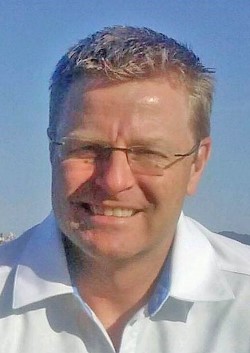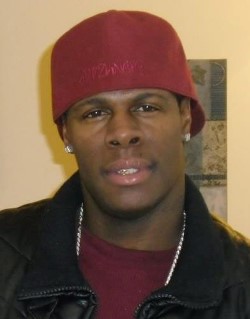

Baseball, basketball stars took different routes to KCKCC; induction ceremonies Nov. 10
by Alan Hoskins, KCKCC
Two of the finest athletes to ever don uniforms at Kansas City Kansas Community College are the newest members of the college’s Athletic Hall of Fame.
Mike Hinkle, who helped lead the Blue Devil baseball team to an all-time record 53 wins in 1985, and Greg Wells, who led the Jayhawk Basketball Conference in scoring in 2004, will be inducted into the Hall of Fame in ceremonies during the annual Keith Lindsey Basketball Classic Friday, Nov. 10.
Both are Kansas City, Kansas, natives and both enjoyed success professionally in their sports after departing KCKCC. However, they took decided different routes to the Hall of Fame.
Hinkle, who played baseball, football, basketball and tennis at Sumner Academy of Arts and Science, played every game in his two years at KCKCC. When he wasn’t playing centerfield, he was pitching. As a freshman, Hinkle batted .319 with five home runs and nine doubles. On the mound, he was 6-2 with a 2.66 earned run average. In 58 innings, he struck out 54.
Hinkle was 10-2 with an ERA of just over 3.0 in a 53-13 campaign that saw the Blue Devils come up just short of a World Series berth, losing to Connor State in a three-state district playoff final. Hinkle took a .369 batting average with nine home runs and 44 RBI into the playoffs.
For his performance on the field and in the classroom (3.8 GPA with straight A’s his next to last semester), Hinkle was named the Kansas Community College Athlete of the Year, the first and only KCKCC athlete to receive the honor. He also received the KCKCC Presidential Outstanding Athlete Award which was based on athletic ability, scholastic achievements, leadership qualities and overall personal conduct.
Hinkle finished his collegiate career at Kansas State, earning first team All-Big Eight and second team Academic All-America honors as a senior. Drafted by the St. Louis Cardinals, he spent six years in the Cardinals organization including three seasons in Triple A. He also played two stints in Italy. For the last 18 years, he has worked for American Century Investments as a compliance consultant.
Wells, on the other hand, never played in an organized game of basketball before coming to KCKCC. Although not directly involved in a robbery, he was arrested as an accessary and served eight years in Kansas correctional facilities. He came out of prison determined to get an education through his basketball skills honed behind bars.
Despite his lack of experience, he was a starter by mid-season of his freshman year. Scoring in double figures in 8 of his last 10 games, he was fifth in scoring (8.3), third in rebounding (4.4) and first in field goal shooting percentage (.564).
By his sophomore season, he was dominating the Jayhawk Conference, running away with the scoring title with 22.2 points a game that was sixth most in the nation. He also led in rebounds (8.1) and shooting (.571) and more important, had a 3.4 grade point average.
Halfway through his first season at Rockhurst, Wells got an opportunity too good to pass up, a pro contract with the Harlem Rockets, and for the next seven years he would travel the U.S., Far East and elsewhere, playing 180 games in 180 cities a year. Although just 6-foot-2, Wells was known as “The Finisher” because of his spectacular dunking abilities.
Retired after being injured in an auto accident in 2012, Wells now lives in Richmond, Va., where he works with promising young basketball players seeking to play at the college level.
